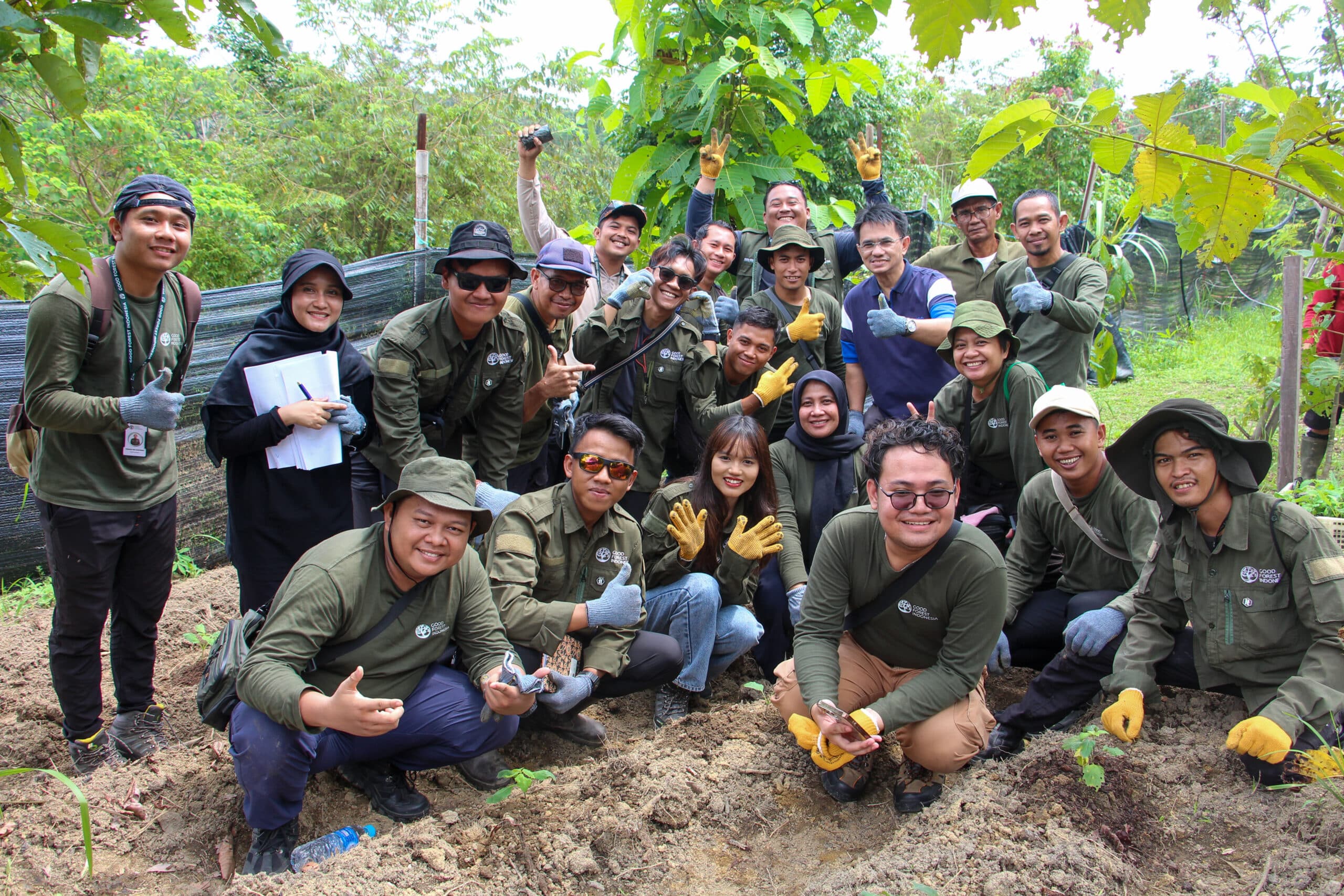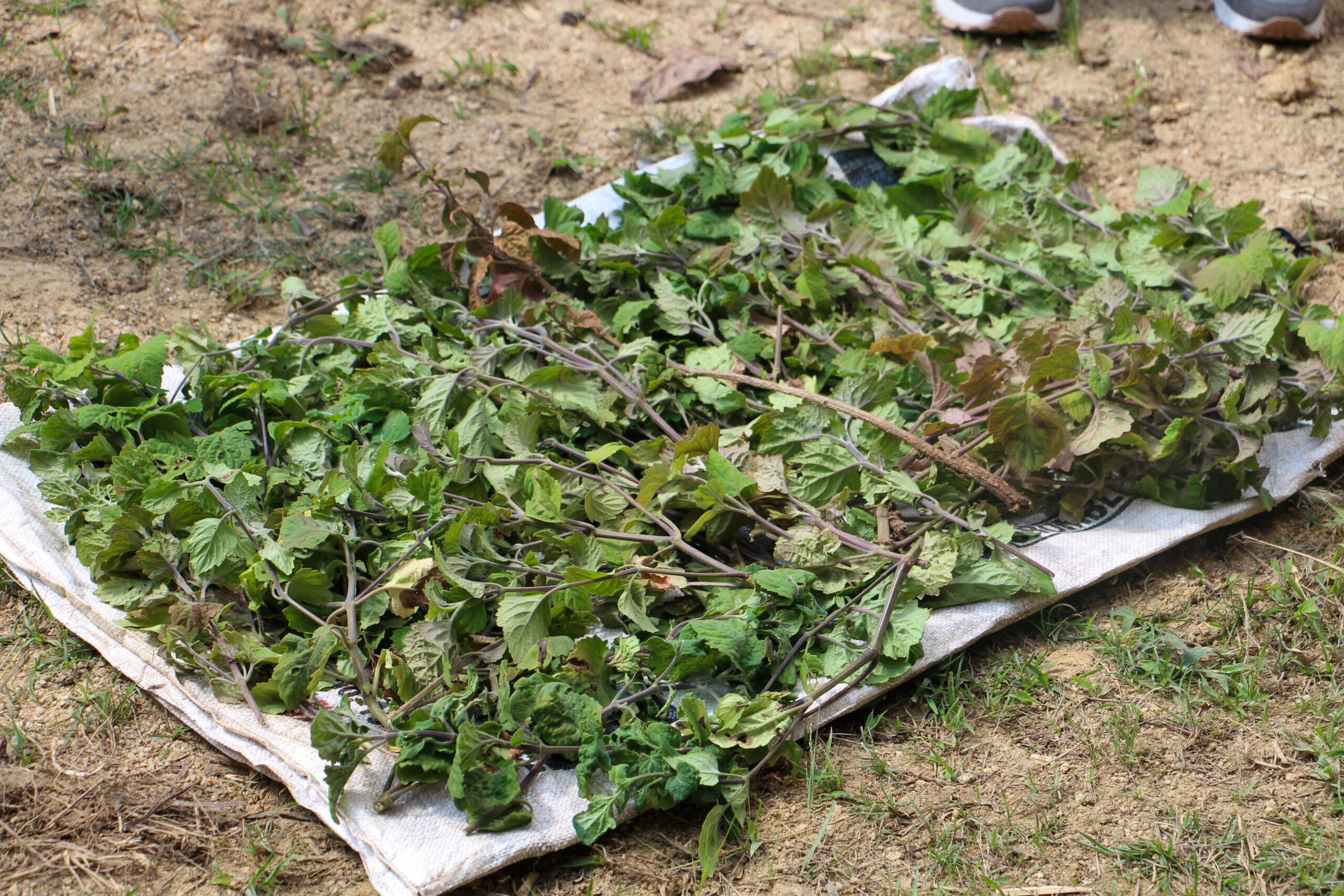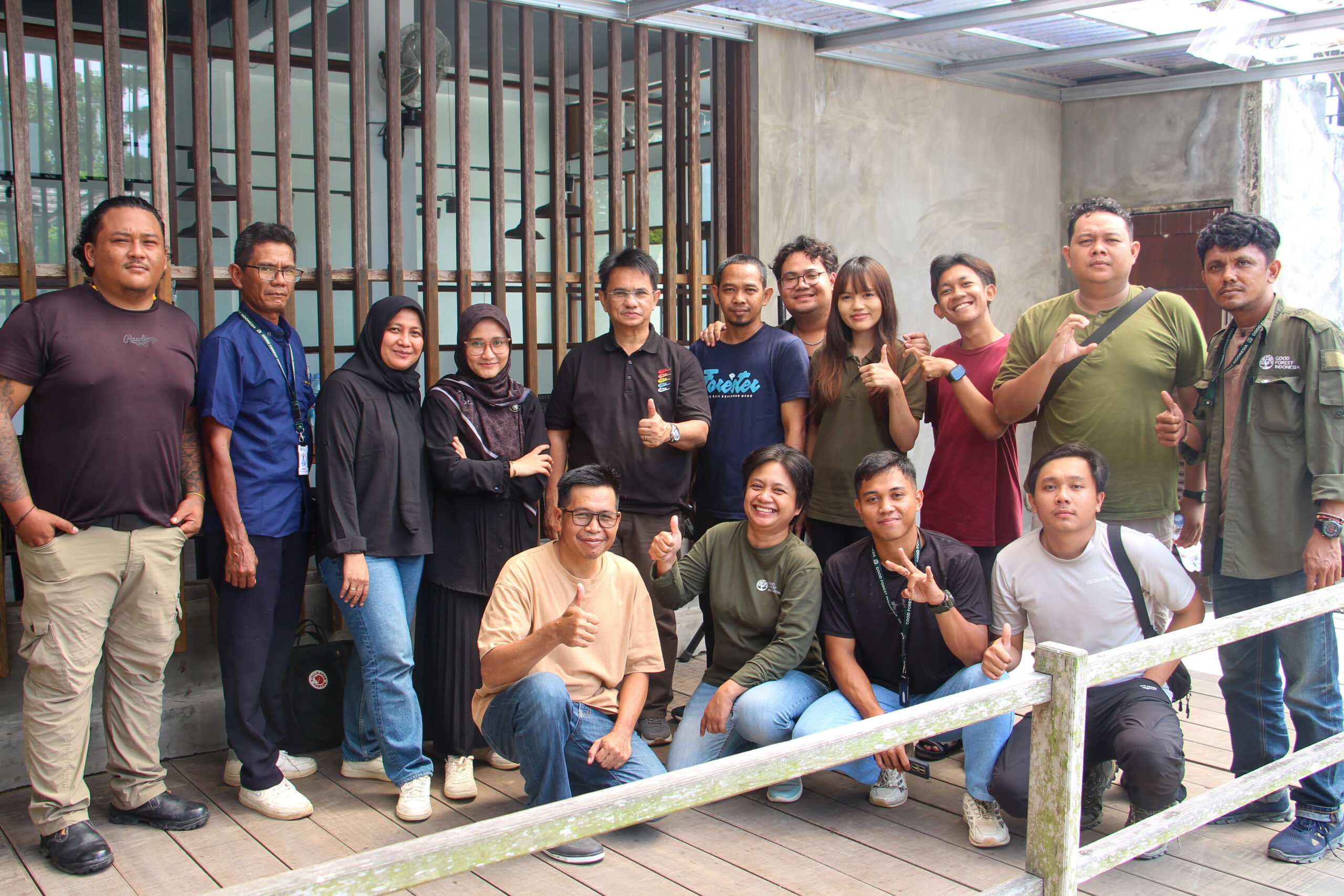Training of Trainers: Strengthening Patchouli Knowledge and Skills

Good Forest Indonesia (GFI), our trusted partner in Indonesia, started to develop a value chain for Patchouli two years ago. Find out more about Patchouli and the Destilly that was built for processing it here.
To ensure effective patchouli cultivation, continuous learning and the exchange of practical experience are essential. That’s why GFI organized a Training of Trainers (ToT) program in Sumur Mas Village, Central Kalimantan.
This regular training aims to equip GFI staff with the skills and expertise needed to train farmers who are interested or are already planting Patchouli. To further improve the training, an external patchouli expert from Aceh, Indonesia was invited to share his knowledge and proven cultivation practices.
Patchouli as a Short-Term Alternative Income
To ensure the success and sustainability of patchouli cultivation in Central Kalimantan, GFI and local farmers must develop the value chain from production to final products.
Fadhillah Hanum, director of GFI, explained that the patchouli ToT program was organized to support agroforestry-based reforestation programs in Central Kalimantan:
“Patchouli was chosen for its high economic potential. Over the past two years, GFI has developed patchouli cultivation along with a distillation facility. Moving forward, GFI aims to expand the patchouli program in Central Kalimantan through community-based cultivation initiatives, including training, mentoring, seed distribution, monitoring, and facilitating market access”

Module Development to Cultivation Practices
The Training activities lasted for 4 days, beginning with a workshop on patchouli cultivation modules and curriculum.
Participants engaged in practical cultivation activities, including seedling production, planting, fertilization, and harvesting at the patchouli nursery site. During this period, participants also learned about patchouli oil production at the GFI patchouli distillation site in Sumur Mas Village.

The ToT ended with an evaluation and finalization of training modules for upcoming Farmer Field Schools in Central Kalimantan. Participants received materials on basic cultivation, analysis, and community-based business strategies.
A key takeaway was the importance of land suitability surveys, as soil and climate conditions strongly affect patchouli cultivation in different regions.
“Make sure to create training programs that are interesting for farmers. Don’t just focus on physical development, but also on non-physical development. Motivate farmers that planting patchouli will bring economic and environmental benefits with the concept of zero waste, where not only the oil is used, but the leaves left over from distillation can also be used as compost to restore soil nutrients,” said the Patchouli expert from Aceh.
Fairventures Worldwide is excited to see the great progress in the patchouli value chain. We can not wait to see how patchouli will open up sustainable income opportunities for smallholder farmers and their families, aligning seamlessly with reforestation efforts.

